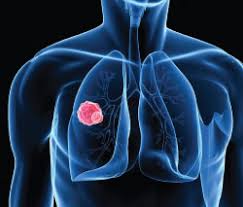“For patients with stage III non-small-cell lung cancer, standard-dose chemoradiation therapy is better than high-dose treatment, with higher five-year overall survival rates”
You’ve been diagnosed with lung cancer (LC). You want to do everything you can in an effort to “beat this thing!” Consider taking a multi pronged evidence-based approach. Combine the best of non-conventional therapies with a less is more approach to your chemo radiation. Let me explain.
A growing number of studies comparing chemo and/or radiation dose and cancer treatment is determining that lower doses of toxic therapies are more effective aka they kill more cancer while causing less collateral damage aka fewer side effects.
I am both a cancer survivor and cancer coach. Have you been diagnosed with lung cancer? Please scroll down the page, post a question or comment and I will reply to you ASAP.
thank you,
David Emerson
- Cancer Survivor
- Cancer Coach
- Director PeopleBeatingCancer
Recommended Reading:
“For patients with stage III non-small-cell LC, standard-dose (SD) chemoradiation therapy is better than high-dose (HD) treatment, with higher five-year overall survival rates…
Jeffrey D. Bradley, M.D., from the Washington University School of Medicine in St. Louis, and colleagues conducted a phase III randomized trial to compare SD (60 Gy) with high-dose (HD; 74 Gy) chemoradiation therapy and to assess the efficacy of cetuximab for 496 patients with stage III non-small-cell lung cancer. Patients were followed for a median of 5.1 years for the primary end point of overall survival.
The researchers found that for the SD and HD arms, the median overall survival was 28.7 versus 20.3 months, respectively. The five-year overall survival rates were 32.1 versus 23 percent…
In multivariable analysis, factors affecting overall survival included radiation dose favoring SD (lower dose of radiation),
- tumor location,
- institution accrual volume,
- esophagitis/dysphagia,
- planning target volume, and
- V5 heart dose/volume.
Cetuximab use conferred no benefit…”
“Adipose tissue is now considered as an endocrine organ involved in metabolic and inflammatory reactions. Adiponectin, a 244–amino acid peptide hormone, is associated with insulin resistance and carcinogenesis.
Curcumin (diferuloylmethane) is the principal curcuminoid of the popular Indian spice, turmeric. Curcumin possesses antitumor effects, including the inhibition of neovascularization and regulation of cell cycle and apoptosis.
However, the effects of adiponectin and curcumin on non-small cell lung cancer (NSCLC) remain unclear. In this study, we evaluated the expression of adiponectin in paired tumors and normal lung tissues from 77 patients with NSCLC using real-time polymerase chain reaction, western blotting, and immunohistochemistry. Kaplan–Meier survival analysis showed that patients with low adiponectin expression ratio (<1) had significantly longer survival time than those with high expression ratio (>1) (p = 0.015).
Curcumin inhibited the migratory and invasive ability of A549 cells via the inhibition of adiponectin expression by blocking the adiponectin receptor 1. Curcumin treatment also inhibited the in vivo tumor growth of A549 cells and adiponectin expression.
These results suggest that adiponectin can be a prognostic indicator of NSCLC. The effect of curcumin in decreasing the migratory and invasive ability of A549 cells by inhibiting adiponectin expression is probably mediated through NF-κB/MMP pathways. Curcumin could be an important potential adjuvant therapeutic agent for lung cancer in the future.
“Resveratrol has been shown to have antioxidant and anti-proliferative properties in multiple cancer types. Here we demonstrate that H460 lung cancer cells are more susceptible to resveratrol treatment in comparison to human bronchial epithelial Beas-2B cells.
Resveratrol decreases cell viability and proliferation, and induces significant apoptosis in H460 cells. The apoptosis observed was accompanied by an increase in hydrogen peroxide (H2O2) production, Bid, PARP and caspase 8 activation, and downregulation of pEGFR, pAkt, c-FLIP and NFkB protein expression. Furthermore, treatment with H2O2scavenger catalase significantly inhibited resveratrol-induced c-FLIP downregulation, caspase-8 activation and apoptosis.
Overexpression of c-FLIP in H460 cells (FLIP cells) resulted in the inhibition of resveratrol-induced H2O2 production, and a significant increase in resveratrol-induced apoptosis in comparison to H460 cells. In FLIP cells, catalase treatment did not rescue cells from a decrease in cell viability and apoptosis induction by resveratrol as compared to H460 cells.
Resveratrol treatment also led to VEGF downregulation in FLIP cells. Furthermore, inhibition of pEGFR or pAkt using erlotinib and LY294002 respectively, enhanced the negative effect of resveratrol on FLIP cell viability and apoptosis. The reverse was observed when FLIP cells were supplemented with EGF, or transfected with WT-AKT plasmid; resulting in a 20% decrease in resveratrol-induced apoptosis.
In addition, transfection with WT-AKT plasmid resulted in the inhibition of pro-apoptotic protein activation, and c-FLIP and pAkt downregulation. Overall, resveratrol induced apoptosis in H460 lung cancer cells by specifically targeting pAkt and c-FLIP dowregulation by proteasomal degradation in a EGFR-dependent manner…”



